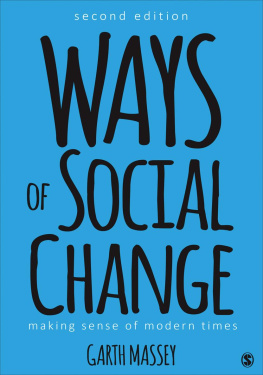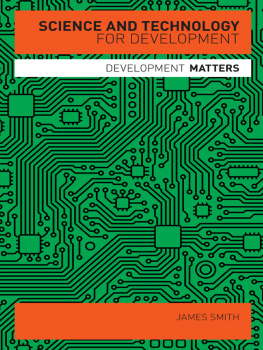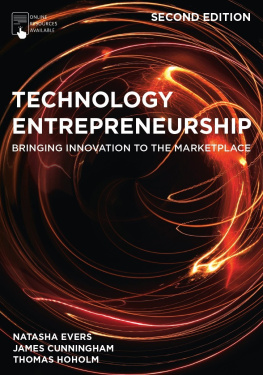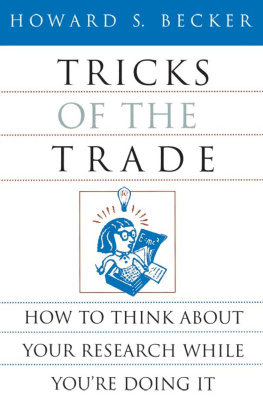
LYCRA
The Anthropology of Stuff is part of a new series, The Routledge Series for Creative Teaching and Learning in Anthropology , dedicated to innovative, unconventional ways to connect undergraduate students and their lived concerns about our social world to the power of social science ideas and evidence. Our goal is to help spark social science imaginations and in doing so, open new avenues for meaningful thought and action. Each Stuff title is a short text illuminating for students the network of people and activities that create their material world.
Lycra describes the development of a specific fiber, but in the process provides students with rare insights into U.S. corporate history, the changing image of women in America, and how a seemingly doomed product came to occupy a position never imagined by its inventors and contained in the wardrobe of virtually every American. And it will generate lively discussion of the story of the relationship between technology, science and society over the past half a century.
Kaori OConnor is a Research Fellow in the Department of Anthropology, University College London (UCL) in the United Kingdom. She holds four degrees in anthropology, worked on Vogue magazine, was the founding editor of the Fashion Guide to London , has written several books on fashion and shopping, designed hand knitwear and originated and presented fashion and lifestyle features for television, radio and national newspapers. She also works on the anthropology of food, for which she won the 2009 Sophie Coe Prize for her study of the Hawaiian Luau. Her most recent book is The English Breakfast: The Biography of a National Meal published by Kegan Paul.
The Routledge series for Creative Teaching and Learning in Anthropology
Editor: Richard H. Robbins, SUNY at Plattsburgh
This Series is dedicated to innovative, unconventional ways to connect undergraduate students and their lived concerns about our social world to the power of social science ideas and evidence. Our goal is to help spark social science imaginations and in doing so, open new avenues for meaningful thought and action.
Available
Re-Imagining Milk
Andrea S. Wiley
Coffee Culture
Catherine M. Tucker
Forthcoming
Fake Stuff
China and the rise of counterfeit goods
Yi-Chieh Jessica Lin
Reading the iPod as an Anthropological Artifact
Lane DeNicola
LYCRA
How a Fiber Shaped America
Kaori OConnor
First published 2011
by Routledge
270 Madison Avenue, New York, NY 10016
Simultaneously published in the UK
by Routledge
2 Park Square, Milton Park, Abingdon, Oxon OX14 4RN
Routledge is an imprint of the Taylor &Francis Group, an informa business
2011 Kaori OConnor
Typeset in Baskerville by Wearset Ltd, Boldon, Tyne and Wear Printed and bound in the United States of America on acid-free paper by Walsworth Publishing Company, Marceline, MO
All rights reserved. No part of this book may be reprinted or reproduced or utilized in any form or by any electronic, mechanical, or other means, now known or hereafter invented, including photocopying and recording, or in any information storage or retrieval system, without permission in writing from the publishers.
Trademark notice: Product or corporate names may be trademarks or registered trademarks, and are used only for identification and explanation without intent to infringe.
Library of Congress Cataloging in Publication Data
OConnor, Kaori.
Lycra / Kaori OConnor.
p. cm. (The Routledge series for creative teaching and learning in anthropology)
1. Sport clothes industryHistory. 2. E.I. du Pont de Nemours & Company--History. 3. Baby boom
generationHistory. I. Title.
HD9948.5.D87O26 2011
338.7687dc22 2010037391
ISBN13: 978-0-415-80436-3 (hbk)
ISBN13: 978-0-415-80437-0 (pbk)
ISBN13: 978-0-203-82990-5 (ebk)
IN MEMORIAM
With Love and Thanks
Gail Margaret Kelly
Professor of Anthropology, Reed College
Rodney Needham
Professor of Social Anthropology, University of Oxford
Owen Ulph
Professor of History, Reed College
Peter Gathercole
Cambridge University Museum of Archaeology and Anthropology
ILLUSTRATIONS
Figures
| 1.1 |
| 2.1 |
| 2.2 |
| 2.3 |
| 3.1 |
| 3.2 |
| 3.3 |
| 3.4 |
| 3.5 |
| 4.1 |
| 4.2 |
| 4.3 |
| 4.4 |
| 4.5 |
| 4.6 |
| 4.7 |
| 5.1 |
| 5.2 |
| 5.3 |
| 5.4 |
| 5.5 |
| 5.6 |
Table
SERIES FOREWORD
The premise of these short books on the anthropology of stuff is that stuff talks, that written into the biographies of everyday items of our lives coffee, T-shirts, computers, iPods, flowers, drugs, coffee and so forth are the stories that make us who we are and that make the world the way it is. From their beginnings, each item bears the signature of the people who extracted, manufactured, picked, caught, assembled, packaged, delivered, purchased and disposed of it. And in our modern market-driven societies, our lives are dominated by the pursuit of stuff.
Examining stuff is also an excellent way to teach and learn about what is exciting and insightful about anthropological and sociological ways of knowing. Students, as with virtually all of us, can relate to stuff, while, at the same time, discovering through these books that it can provide new and fascinating ways of looking at the world.
Stuff, or commodities and things, are central, of course, to all societies, to one extent or another. Whether it is yams, necklaces, horses, cattle or shells, the acquisition, accumulation and exchange of things is central to the identities and relationships that tie people together and drive their behavior. But never, before now, has the craving for stuff reached the level it has; and never before have so many people been trying to convince each other that acquiring more stuff is what they most want to do. As a consequence, the creation, consumption and disposal of stuff now threatens the planet itself. Yet, to stop or even slow down the manufacture and accumulation of stuff would threaten the viability of our economy, on which our society is built.
This raises various questions. For example, what impact does the compulsion to acquire stuff have on our economic, social and political well-being, as well as on our environment? How do we come to believe that there are certain things that we must have? How do we come to value some commodities or form of commodities above others? How have we managed to create commodity chains that link peasant farmers in Colombia or gold miners in Angola to wealthy residents of New York or teenagers in Nebraska? Who comes up with the ideas for stuff and how do they translate those ideas into things for people to buy? Why do we sometimes consume stuff that is not very good for us? These short books examine such questions, and more.










